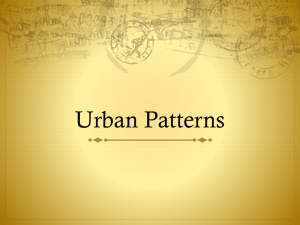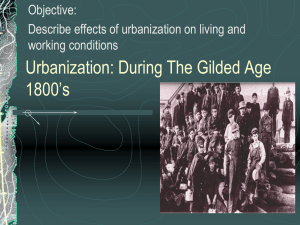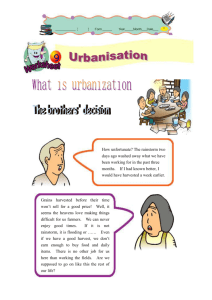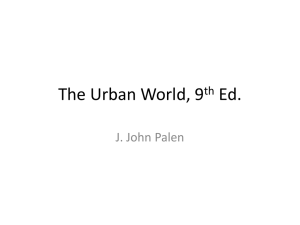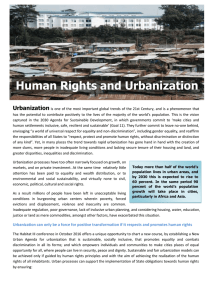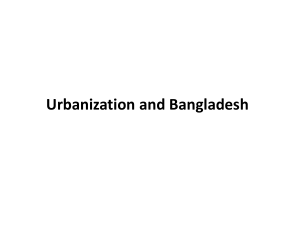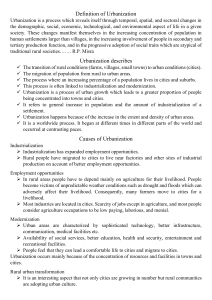5.City-6 MCQ-eng
advertisement
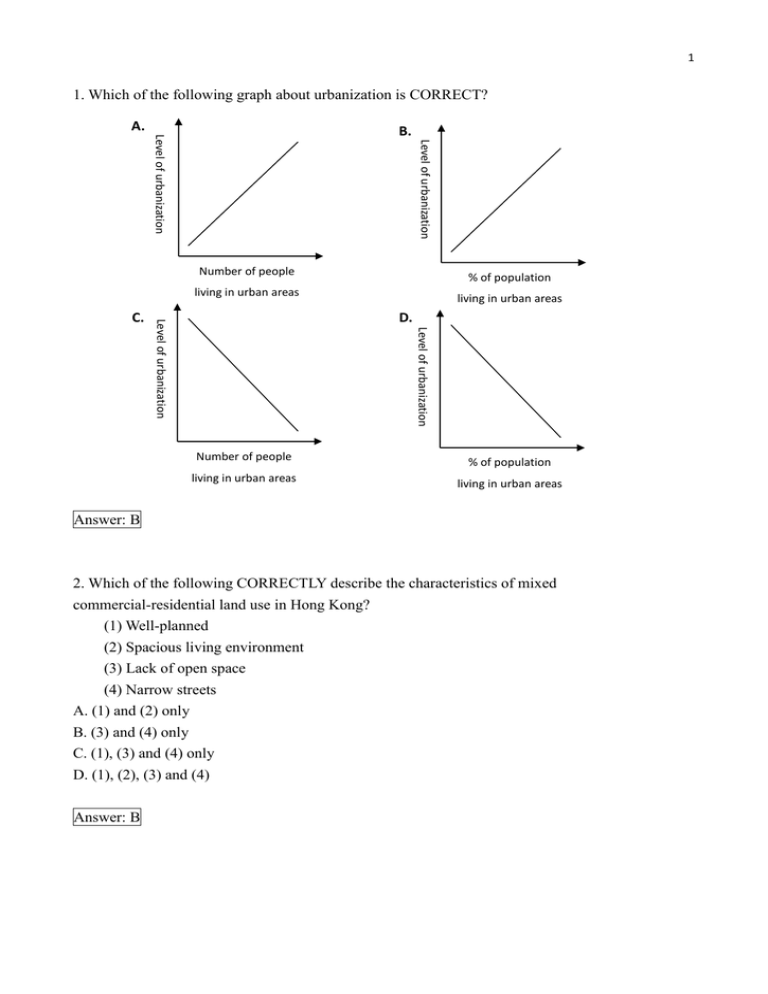
1 1. Which of the following graph about urbanization is CORRECT? A. Level of urbanization Level of urbanization B. Number of people % of population living in urban areas D. Level of urbanization Level of urbanization C. living in urban areas Number of people % of population living in urban areas living in urban areas Answer: B 2. Which of the following CORRECTLY describe the characteristics of mixed commercial-residential land use in Hong Kong? (1) Well-planned (2) Spacious living environment (3) Lack of open space (4) Narrow streets A. (1) and (2) only B. (3) and (4) only C. (1), (3) and (4) only D. (1), (2), (3) and (4) Answer: B 2 3. Which of the following are reasons why people move to live in the new towns of Hong Kong? (1) Improved accessibility (2) Great variety of job opportunities (3) Better living environment (4) Inexpensive houses A. (1) and (3) only B. (2) and (4) only C. (1), (2) and (4) only D. (1), (2), (3) and (4) only Answer: A 4. Which of the following comparison of rural and urban areas are CORRECT? Rural area Urban area (1) Population density Lower Higher (2) Type of building Mainly village houses Mainly high-rise buildings (3) Type of industry Mainly primary Mainly secondary and tertiary (4) Settlement pattern Nucleated only Dispersed only A. (1) and (2) only B. (3) and (4) only C. (1), (2) and (3) only D. (1), (2), (3) and (4) Answer: C 5. Place X Year 1991 2011 Urban population 213215 321361 Rural population 95423 90422 Total population 308638 411783 Which of the following urban development processes can be found in Place X above? 3 (1) Urban growth (2) Urbanization (3) Counter-urbanization (4) Urban decay A. (1) and (2) only B. (3) and (4) only C. (1), (2) and (3) only D. (1), (3) and (4) only Answer: A 6. Which of the following CORRECTLY show the contribution of urban renewal to sustainable development of the inner city areas in Hong Kong? (1) To revitalize the economic activities (2) To improve the living conditions (3) To improve accessibility (4) To provide more open space A. (1) and (3) only B. (2) and (4) only C. (1), (2) and (4) only D. (1), (2), (3) and (4) Answer: C
